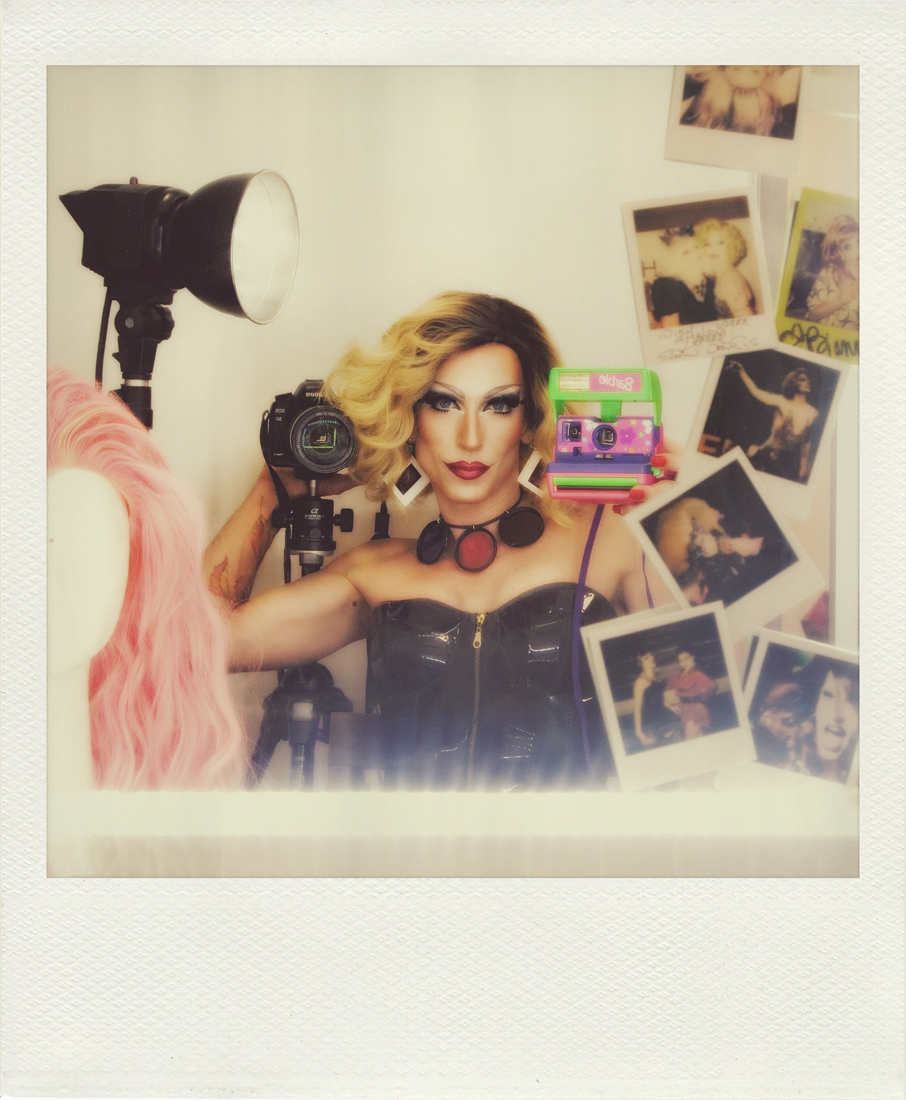People - NOMINEE: Roberto Pêgo
Roberto Pêgo
Betina's Drag Polaroids
Support this photographer - share this work on Facebook.
Over the last few years the drag queen culture has been growing and taking new forms in Brazil. The visual appeal of the outfits and the expressiveness of drag artists are an invitation to photograph and soon I found a motivating theme for my work as a photographer. I became a fanatic, mixed in with the audience, camera in hand, in search of the climax of each performance. But even though I was getting good photos, I was living with unease. Invisible in the crowd, protected by the camera, I found myself facing a mirror in which I could see how I identified with those artists, but not my reflected image. The image in the mirror was me, but at five years old. I met the boy who didn’t fit the standards of masculinity, who could not play with dolls or wear lipstick, playing hidden, this time behind the lenses of a professional camera. There was no point in taking photos of drag queens as a foreigner in an exotic land when the object of my work denounced the oppression of societal gender norms that turned the joyful and spontaneous boy into the shy and discreet photographer. I realized, in fact, that the art of drag is also a political act. At the same time as Brazil is undergoing a political moment of regression in which the conservative elite is working to reverse the few rights conquered by the LGBT community and to prevent the criminalization of homophobia, the nightlife in the big cities is increasingly populated by drag queens, on stage or in the streets, in a resistance movement for freedom of expression in support of the plurality of sexual orientations and gender identities, in repudiation of every kind of oppression.
Hiding myself behind the camera and feeling satisfied through voyeurism was no longer possible, so I created the drag photographer Betina Polaroid. I started to capture drag queens, kings and queers from inside the scene, telling the story of a movement of which I am now also a part. So, beyond the photographs, my life story and Betina herself are part of the work. The reference to the 80’s and 90’s, my childhood and adolescence, is present in both my drag character – with her pink, limited edition Polaroid 600 camera inspired by the Barbie doll, that shares the bag with the Canon 5D and a make-up kit – and the creative freedom and playful way in which the images are transformed and exhibited, whether they are original instant film snapshots or digital images manipulated to reproduce the vintage aesthetic. Analog minilabs, wireless mini-printers and other gadgets are used to print digital images on instant film. The simulations and transformations from digital into analog, or vice versa, also refer to the drag art, where makeup, prosthetics, costumes and props create illusion and fantasy. Betina is at the same time an experienced multimedia artist and a boy not conforming to gender norms poring over the colors of the rainbow in art class.
In this series of 10 photos I'm bringing a self-portrait in my new dressing room and presenting 10 of my new friends: Danjah Patra, the top model samurai; bearded queen Tizzy and king Wendel; the black goddess Aretha Sadick; the diva Aurora Boreallis celebrating pride; "the queen of the people" Ravena Creole; the gothic queer sisters Pandora Yume and Joy Yume; the muscled princess Chloe Van Damme; and the femme-fatale Aurora Black.
About author:
Beto Pêgo started to study Photography in the 90's during his graduation on Advertising at UFRJ (Federal University of Rio de Janeiro), when he attended classes on Photography and History of Art at Parque Lage School of Arts and worked as assistant for experienced photographers; always seeking theoretical and technical improvement, finding in photography his means of artistic expression and a broad professional field. In almost 20 years in this career, Beto worked in several areas: travel, documentary, cultural events, editorial and advertising. O Globo newspaper, Abril Press’ magazines, Universal Music and L'Orèal are some of his clients and publishers. Living and working in Rio de Janeiro, Beto has also worked as Photography teacher in schools and colleges. He's shown his photo-based art in exhibitions and events, as FotoRio photo festival, and engaged on social projects working with local NGOs. Beto is now engaged in projects within the LGBT community performing as Betina Polaroid, the drag photographer that captures the art and life of drag queens, kings and queers from inside - and being part of - their cultural ambience.

